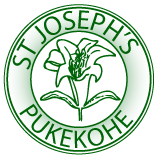Social Sciences at St Joseph’s
The social sciences learning area is about how societies work and how people can participate as critical, active, informed, and responsible citizens. Contexts are drawn from the past, present, and future and from places within and beyond New Zealand.
Through the social sciences, students develop the knowledge and skills to enable them to: better understand, participate in, and contribute to the local, national, and global communities in which they live and work; engage critically with societal issues; and evaluate the sustainability of alternative social, economic, political, and environmental practices. NZCp30
Students at St Joseph’s School will explore the unique bicultural nature of New Zealand society and the Treaty of Waitangi. They will learn about people, places, cultures, histories, and the economic world, within and beyond New Zealand, and how societies are organised and function. They will develop an understanding of why/how people and communities respond exploring different perspectives, values, and viewpoints. Students will understand better their own identities, in relation to their heritage, Catholic faith and in other contexts.
Social Sciences has four conceptual strands, with achievement objectives that could be used through any of them.
In Identity, Culture, and Organisation, students learn about society and communities and how they function. They also learn about different cultures and identities of people, and how these might affect the participation of groups and individuals.
In Place and Environment, students learn about how people perceive, represent, interpret, and interact with places and environments, and the relationships that exist between people and the environment.
In Continuity and Change, students learn about past events, experiences, and actions and the changing ways in which these have been interpreted over time. This helps them to understand the past and the present and to imagine possible futures. In Economic World, students learn about the ways in which people participate in economic activities and about the consumption, production, and distribution of goods and services. They develop an understanding of their role in the economy and of how economic decisions affect individuals and communities.
The achievement objectives can be developed through a range of approaches. Using a social inquiry approach (reflecting our Catholic teachings), students:
-
ask questions, gather information and background ideas, and examine relevant current issues
-
explore and analyse people’s values and perspectives
-
consider the ways in which people make decisions and participate in social action
-
reflect on and evaluate the understandings they have developed and the responses that may be required.
Inquiry in the social sciences is also informed by approaches originating from such contributing disciplines as history, geography, and economics.


